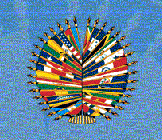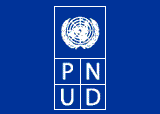The Washington Post
Venezuela, Opposition Continue Talks
By Stephen Ixer
Associated Press Writer
Wednesday, November 13, 2002; 5:05 PM
CARACAS, Venezuela –– About 200 national guardsmen patrolled downtown
Caracas on Wednesday, hoping to keep further clashes with supporters
of President Hugo Chavez from overshadowing talks with Venezuela's
opposition.
One day after Chavez supporters clashed with troops and police outside
city hall, Lina Ron, leader of the radical armed groups dubbed "Bolivarian
Circles," screamed "Assassin! Assassin!" at the offices of Caracas
Mayor Alfredo Pena.
One person was killed and 20 were wounded in Tuesday's violence, which
began when police used tear gas to remove the protesters.
Pena, once a Chavez ally, demanded the president rein in his street
radicals. "Who is arming these circles? Why doesn't Chavez use the
army to disarm them?" Pena asked during an interview with Globovision
television.
Chavez's supporters accuse Pena's police force of triggering Tuesday's
violence by breaking up a peaceful demonstration.
Pena was assaulted late Tuesday by Chavez supporters, including some
lawmakers, while visiting victims of the clash at a Caracas hospital.
Meanwhile, a grenade exploded outside Cardinal Ignacio Velasco's
residence late Tuesday. Velasco, the archbishop of Caracas, was home
at the time, but was not hurt. It was the latest of several attacks
against perceived opponents of Chavez's government, including
Venezuela's largest labor and business groups and the media. Also
Tuesday, tear gas was hurled at the offices of the newspaper, Asi Es
La Noticia.
Cesar Gaviria, secretary general of the Organization of American
States, warned the violence could derail negotiations between the
opposition and government in Venezuela, the world's fifth biggest oil
exporter.
The opposition seeks a nonbinding referendum on the president's
continued rule and has threatened a general strike. It has delivered 2
million signatures demanding the early vote, and the National
Electoral Council has until Dec. 4 to verify them and convoke a
referendum, possibly in February.
Chavez insists that under the constitution, a referendum can not be
held until halfway through his current term – August 2003.
Gaviria, who is mediating the talks, urged the government to punish
those responsible for Tuesday's violence. He also expressed concern
over the number of crimes being committed with apparent impunity in
Venezuela. During a failed coup that briefly unseated Chavez in April,
60 people were killed, but no one has been prosecuted.
Since the OAS-brokered negotiations began Friday, the government has
urged the opposition to abandon the strike threat and distance itself
from rebellious military officers who have occupied a Caracas plaza
since Oct. 22.
In turn, opposition negotiators accuse the government of seeking any
excuse to avoid a vote. Chavez's approval ratings have plunged from 80
percent when he was elected to about 30 percent amid rising crime,
political violence and economic recession.
The Venezuelan Workers Confederation is touring the country to drum up
support for a nationwide strike and is closely watching events at the
state-owned oil monopoly Petroleos de Venezuela.
White collar workers staged protests earlier this week against what
they claim is Chavez's politicization of the company, which prizes its
autonomy. State oil employees led a general strike ahead of April's
failed coup.
© 2002 The Associated Press
http://www.washingtonpost.com/wp-dyn/articles/A50055-2002Nov13.html


